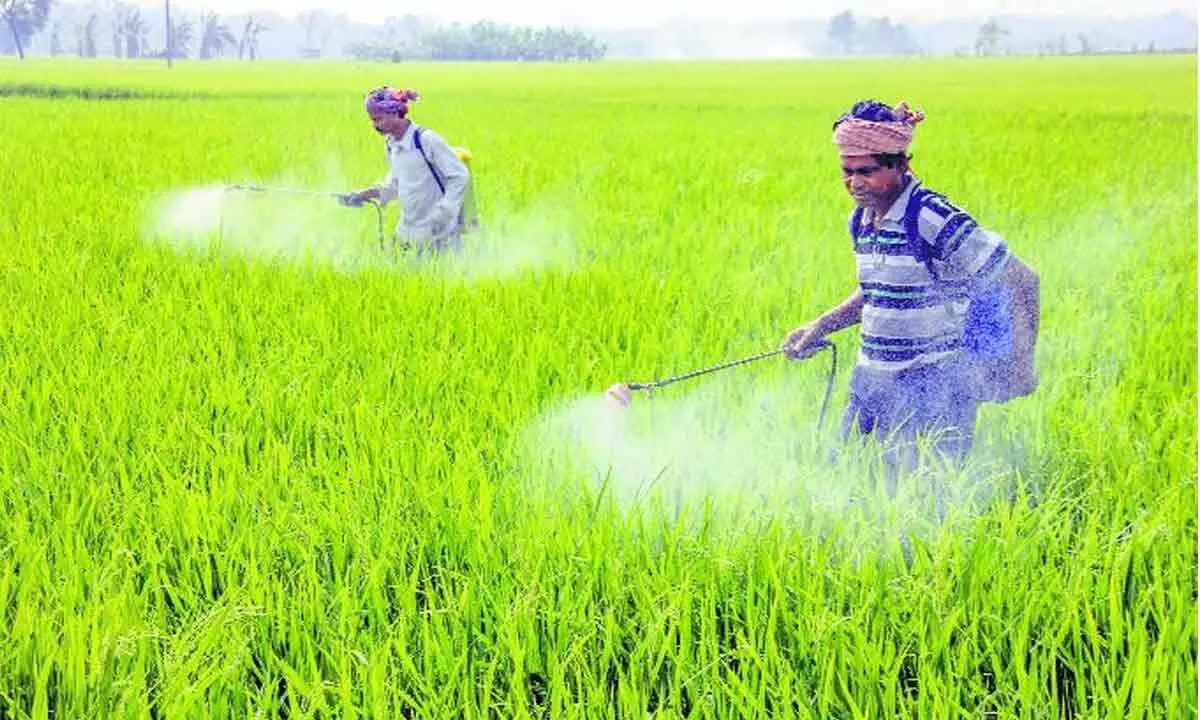Spurious pesticides hitting agri hard
Rough estimates put adulteration of seeds and pesticides at 25% by value and 30% by volume of the domestic pesticide industry; 18% GST onpesticides makes genuine products costlier
image for illustrative purpose

New Delhi: In the first week of May, officials of the Department of Agriculture & Farmers' Welfare seized a huge stock of spurious pesticides and seeds from a house in the Moga district of Punjab. Two months ago, the Delhi Police cracked down on a spurious pesticide manufacturing plant in Bawana. Manufacture and sale of spurious pesticides continue to dog not just those who are legally involved in the trade, but also hurt farmers and damage the environment.
Worse, the problem is spread all over the country. A year ago, Telangana Chief Minister K Chandrashekhar Rao had directed the State officials concerned to strictly curb the practice of adulteration of seeds and pesticides. He also favoured amendments to the existing laws and issuing ordinances, if needed.
Unsurprisingly, the agrochemical industry has been campaigning for the eradication of this problem. Dhanuka Group chairman RG Agarwal, told Bizz Buzz: "Unfortunately, India's agrochemical industry is flooded with substandard and spurious products. The government must tackle this menace so that its laudable objective of doubling farmers' income could be achieved."
While the current magnitude of spurious pesticides is not known, a study that Ficci carried out in association with the Tata Strategic Management Group (TSMG) in 2015 estimated the non-genuine and illegal pesticides worth Rs3,200 crore were sold in 2013. This was about 25 per cent by value and 30 per cent by volume of the domestic pesticide industry at that time.
"Our study also indicates that this market is expected to grow at approximately 20 per cent per year in value terms and if the problem is not addressed it can reach to approximately 40 per cent share by value in the pesticide industry by FY19 in India. It also unravels that UP, Jharkhand, MP, erstwhile Andhra Pradesh, Haryana, Maharashtra, West Bengal, Karnataka and Tamil Nadu are the states which are highly affected with non-genuine/illegal products," the study said.
Has the ominous prognosis come true? Yes, said Binod Anand, a farm leader who also advises the Dhanuka Group.
"About half the pesticides sold today are spurious and counterfeit."
Anand said that a very high rate of GST on pesticides, at 18 per cent, makes the genuine products costlier, whereas the spurious ones become very cheap in comparison.
"While agri-products in general are taxed at 5 per cent, in the case of pesticides the rate is 18 per cent," he said. The farmer would also suffer economically because such pesticides can reduce the yield of the farm by more than half to nil.
"Industry is collaborating with government to check the menace of spurious pesticides. "We recently launched a mass awareness campaign from Haryana, and will extend the campaign to other parts of the country in the coming months," Dhanuka's Agarwal said.

